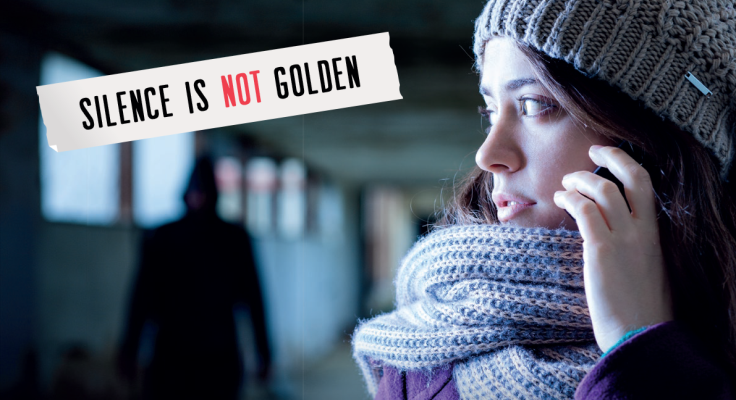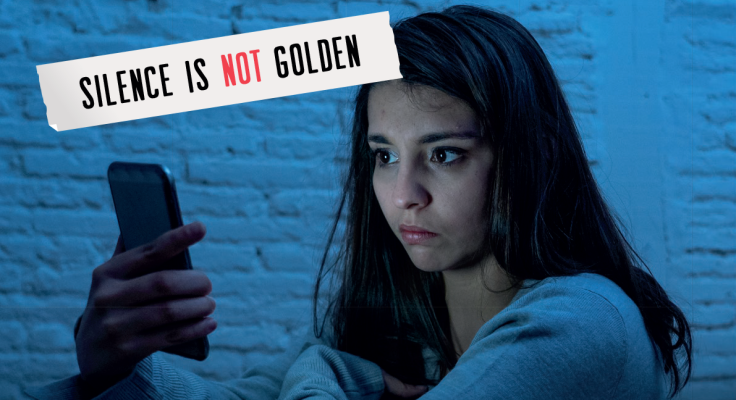Stalking and Harassment
Some people think stalking is something that just happens to celebrities, but the reality is that it can happen to anyone.
What is stalking
Stalking can be defined as persistent and unwanted attention that makes you feel pestered and harassed. It includes behaviour that happens two or more times, directed at or towards you by another person, which causes you to feel alarmed or distressed or to fear that violence might be used against you.
What makes the problem particularly hard to cope with is that it can go on for a long period of time, making you feel constantly anxious and afraid. Sometimes the problem can build up slowly and it can take a while for you to realise you are caught up in an ongoing campaign of abuse.
The problem isn’t always ‘physical’ — stalking can affect you psychologically as well. Social media and the Internet are often used for stalking and harassment, and ‘cyber-stalking’ or online threats can be just as intimidating.
What should I do if I am a victim of harassment or stalking?
If you feel in immediate danger at any time always call 999. Contact South Yorkshire Police on 101 for other non-urgent issues. Police will arrange a convenient time to meet you and take relevant details in order to give more specific safety advice to you. It is important that you tell the officer everything that has happened, even if you think it may sound trivial or alternatively you can contact the National Stalking Helpline 0808 802 0300.
How you can help yourself:
- Take a mobile telephone with you when you go out
- Carry a personal attack alarm, try to alter your daily routines, ask friends to accompany you whenever possible, and always let someone know what your plans are
- Keep a record of what happened, where, when and every time you were followed or phoned, received post or e-mailed
- Record how the offender looked or sounded, what they were wearing, the make, and number plate or colour of their car
- Keep letters and parcels as evidence even if they contain frightening or upsetting messages. Do not throw them away.
- Keep copies of e-mails on a disk or USB flash drive, and print out hard copies. Do not delete the originals.
- Making notes in a diary is a good idea. Write the information down as soon as possible, when events are still fresh in your mind.
- Record telephone conversations if you can on a dictaphone or mobile phone if it has that facility
- If you recognise the handwriting, you can keep letters or parcels as evidence without having to open them
- Make sure you keep any stored messages (including text messages) or telephone numbers that you have received on your mobile phone and caller ID units
- Use 1471 on the phone and write down details of calls received, including the time received, and the telephone numbers (even unanswered calls)
- Tell your friends, neighbours and work colleagues about what is happening
- Try to get photographic or video evidence of your stalker (especially if they are someone already warned by the police not to come near you)
- Contact your telephone company to see what action they can take against malicious callers or register with Telephone Preference Service to be removed from direct marketing lists
- Write down information as soon as possible when events are still fresh in your mind
- Print pages of evidence from social networking sites and times that messages were posted.
Avoiding unwanted calls:
- Answer the phone by saying ‘hello’, not your name or number
- Try to keep calm and not show emotion, many callers will give up if they don’t think they’re making an impression on you or your feelings
- Use an answer machine to screen out calls and only talk to people you want to
- If the caller rings again, put the handset down on a table for a few minutes. The caller will think you’re listening. After a few minutes replace the handset, you do not have to listen to what the caller has to say.
- Use 1471 on the phone and write down details of calls received, including the time received, and the telephone numbers (even unanswered calls).
If you know or find out who is stalking you:
- Do not confront your stalker or even engage them in conversation
- Do not, under any circumstances, agree to a meeting to talk about how you feel about them constantly bothering you
- Do not respond in any way to calls, letters, or conversations. If you ignore the phone nine times and pick it up on the tenth, you will send the message that persistence pays. Once they have your attention, they will be encouraged to carry on.
- Seek advice from the police, a solicitor or the National Stalking Helpline about what you should do.
Physical stalking
- Consider carrying a personal alarm
- Vary your daily routine and take different routes to and from work
- Know where the nearest safe location is, for instance a police station. But, if there isn’t one nearby, you could use a 24 hour supermarket with security guards and CCTV cameras
- Talk to the police about using CCTV and/or installing a panic button at your home
- Consider installing an alarm system. Ensure all your doors and windows are locked before you leave home or go to sleep.
Cyber safety
- Get your computer checked for malware and key logging software
- Change your passwords frequently and don’t use the same password for everything
- Limit the amount of information you share about yourself on social networking sites. Check your privacy settings to ensure you are not giving away more information about yourself than you intend to
- Keep your anti-virus software up to date. Report any stalking activity on websites to the administrators. If they won’t act, contact the web hosting company.
Murder in Slow Motion
A series of 3 programmes, produced by ITV for Channel 5 highlighting how three young women were stalked and murdered by ex-boyfriends.
My5 - Stalked: Murder In Slow Motion - Season 1 - Episode 1 / Molly McLaren (channel5.com)
More information
Stalking and Harassment - SYP (southyorks.police.uk)
Suzy Lamplugh - National stalking helpline
Where to get help
Local support
If the person abusing you is a partner/ex-partner or family member please contact the Doncaster Domestic Abuse Hub on 01302737080.
If the person is a stranger, is an acquaintance, a work colleague etc. please contact Victim Support. Tel: 0300 303 1976. Further details are available in the downloadable poster and leaflet on this page.
National Stalking Helpline
The National Stalking Helpline also offers advice to victims:
Tel: 0808 802 0300 Ways to contact us | Suzy Lamplugh Trust
Downloads & Resources
- Victim Support Stalking Service Poster
- Download (1.28MB - PDF)
- Non-domestic stalking service leaflet
- Download (273KB - PDF)
- Non-DA Stalking Poster
- Download (833KB - PDF)
Display your introduction over featured image?: No


